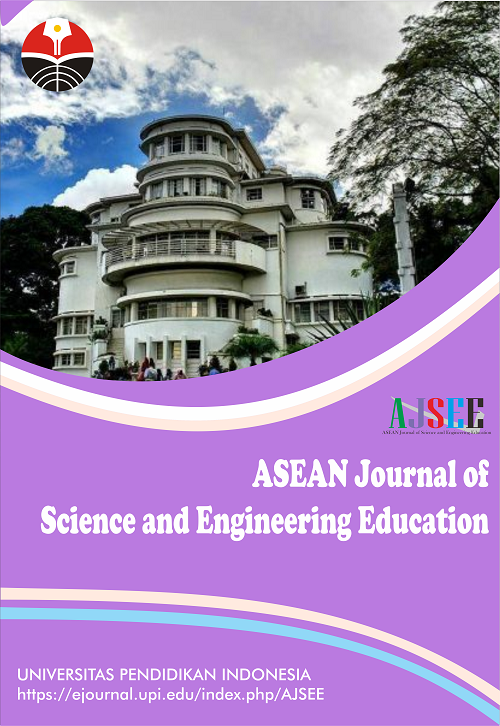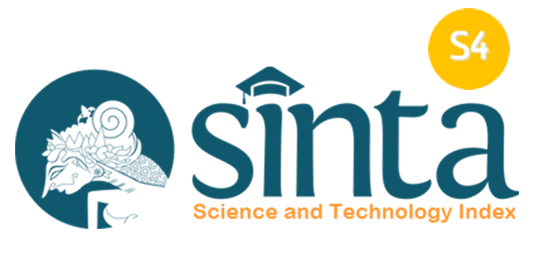Examining Sources of Mathematics Self-Efficacy Beliefs of Senior Secondary School Students
Abstract
Except people have confidence that they can produce desired results they have little motivation to act. Self-referent thought plays a significant part in the psychological working of humans. People’s conception of their efficacy is most powerful in their everyday life and the self-efficacy of a person has been recognized as a vital element for executing tasks successfully. While many studies have shown the predictive power of self-efficacy, fewer efforts have examined the sources underlying self-efficacy beliefs. Sources of self-efficacy in mathematics scale was a multi-dimensional construct comprising: mastery experience; vicarious experience; social persuasions; and physiological and affective states. Senior secondary school students had a moderate level of sources of self-efficacy in mathematics. Gender differences in sources of self-efficacy in mathematics among senior secondary school students were significant and in favor of the male students. However, future studies in Nigeria should investigate the confirmatory factor analytic structure of the sources of self-efficacy in mathematics scale to generalize the findings of this study.
Keywords
Full Text:
PDFReferences
Akinsola, M. K., and Awofala, A. O. A. (2009). Effect of personalization of instruction on students’ achievement and self-efficacy in mathematics word problems. International Journal of Mathematical Education in Science and Technology, 40(3), 389-404.
Anderson, S.L., and Betz, N.E. (2001). Sources of social self-efficacy expectations: Their measurement and relation to career development. Journal of Vocational Behaviour, 58, 98–117.
Arigbabu, A. A. and Oludipe, D. I. (2010). Perceived efficacy beliefs of prospective Nigerian science teachers. Journal of Science Education and Technology, 19, 27–31.
Awofala, A. O. A. and Akinoso, S. O. (2017). Assessment of psychometric properties of mathematics anxiety questionnaire by preservice teachers in south-west, Nigeria. ABACUS: The Journal of the Mathematical Association of Nigeria, 42(1), 355-369.
Awofala, A. O. A. and Falolu, O. S. (2017). Motivation to learn mathematics as correlates of pre-service teachers’ performance in mathematics. ABACUS: The Journal of the Mathematical Association of Nigeria, 42(1), 370-390.
Azar, A. (2010). In-service and pre-service secondary science teachers’ self-efficacy beliefs about science teaching. Educational Research and Reviews, 5(4), 175-188.
Bandura, A. (1977). Self-efficacy: Toward a unifying theory of behavioural change. Psychological Review, 84, 191–215.
Britner, S. L. and Pajares, F. (2006). Sources of science self-efficacy beliefs of middle school students. Journal of Research in Science Teaching, 43(5), 485–499.
Britner, S. L., and Pajares, F. (2001). Self-efficacy beliefs, motivation, race, and gender in middle school science. Journal of Women and Minorities in Science and Engineering, 7, 271–285.
Cattell, R.B. (1966). The screen test for the number of factors. Multivariate Behavioural Research, 1, 245–276.
Henson, R. K. (2001). Understanding internal consistency reliability estimates: A conceptual primer on coefficient alpha. Measurement and Evaluation in Counselling and Development, 34, 177–189.
Huang, C. (2013). Gender differences in academic self-efficacy: a meta-analysis. European Journal of Psychology of Education, 28(1), 1-35.
Isiksal, M., and Askar, P. (2005). The effect of spreadsheet and dynamic geometry software on the achievement and self-efficacy of 7th-grade students. Educational Research, 47(3), 333-350.
Kaiser, H. F. (1960). The application of electronic computers to factor analysis. Educational and Psychological Measurement, 20, 141-151.
Kiran, D., and Sungur, S. (2012). Middle school students’ science self-efficacy and its sources: Examination of gender difference. Journal of Science Education and Technology, 21(5), 619-630.
Lent, R., Lopez, F., and Bieschke, K. (1991). Mathematics self-efficacy sources and relation to science-based career choice. Journal of Counselling Psychology, 38(4), 424-430.
Lent, R.W., Lopez, F.G., Brown, S.D., and Gore, P.A. (1996). Latent structure of the sources of mathematics self-efficacy. Journal of Vocational Behaviour, 49, 292–308.
Louis, R. A., and Mistele, J. M. (2012). The differences in scores and self-efficacy by student gender in mathematics and science. International Journal of Science and Mathematics Education, 10(5), 1163-1190.
Matsui, T., Matsui, K., and Ohnishi, R. (1990). Mechanisms underlying math self-efficacy learning of college students. Journal of Vocational Behaviour, 37, 225–238.
Pajares, F., and Miller, D. (1994). Role of self-efficacy and self-concept beliefs in mathematical problem solving: A path analysis. Journal of Educational Psychology, 86, 193-203.
Pajares, F., and Valiante, G. (1999). Grade level and gender differences in the writing self-beliefs of middle school students. Contemporary Educational Psychology, 24, 390-405.
Pajares, F., Miller, M.D., and Johnson, M.J. (1999). Gender differences in writing self-beliefs of elementary school students. Journal of Educational Psychology, 91, 50–61.
Peters, M. L. (2013). Examining the relationships among classroom climate, self-efficacy, and achievement in undergraduate mathematics: A multi-level analysis. International Journal of Science and Mathematics Education, 11(2), 459-480.
Recber, S., Isiksal, M., and Koç, Y. (2018). Investigating self- efficacy, anxiety, attitudes and mathematics achievement regarding gender and school type. Anales de Psicología, 34(1), 41-51.
Sahil, S. A. S., and Hashim, R. A. (2011). The roles of social support in promoting adolescents' classroom cognitive engagement through academic self-efficacy. Malaysian Journal of Learning and Instruction, 8, 49-69.
Schiefele, U., and M. Csikszentmihalyi (1995), Motivation and ability as factors in mathematics experience and achievement. Journal for Research in Mathematics Education, 26(2), 163-181.
Shkullaku, R. (2013). The relationship between self–efficacy and academic performance in the context of gender among Albanian students. European Academic Research, 1(4), 467-478.
Usher, E. L., and Pajares, F. (2009). Sources of self-efficacy in mathematics: A validation study. Contemporary Educational Psychology, 34(1), 89-101.
Usher, E., and Pajares, F. (2006). Sources of academic and self-regulatory efficacy beliefs of entering middle school students. Contemporary Educational Psychology, 31, 125–141.
Webb-Williams, J. (2014). Gender differences in school children’s self-efficacy beliefs: Students’ and teachers’ perspectives. Educational Research and Reviews, 9(3), 75-82.
DOI: https://doi.org/10.17509/ajsee.v3i3.50347
Refbacks
- There are currently no refbacks.
Copyright (c) 2022 Universitas Pendidikan Indonesia

This work is licensed under a Creative Commons Attribution-ShareAlike 4.0 International License.














